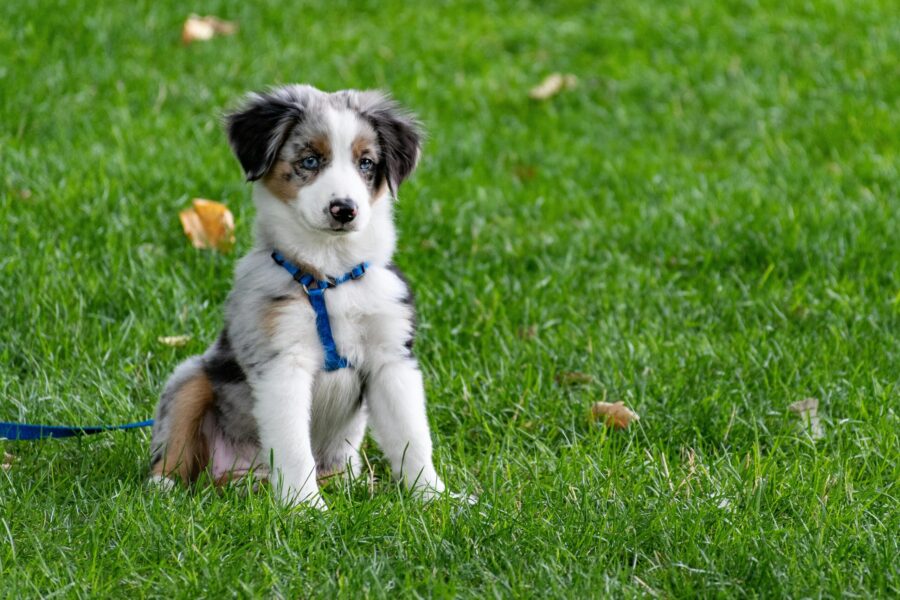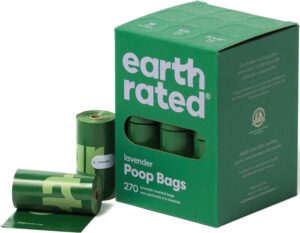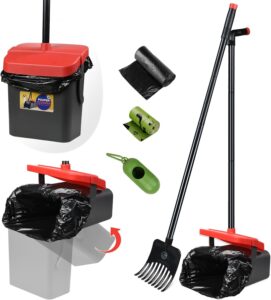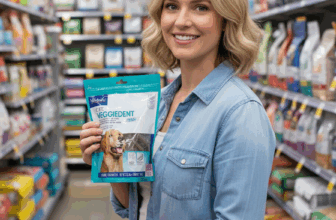Are Dog Poop Bags Bad for the Environment?

Introduction
As responsible dog owners, we all want to keep our neighborhoods clean, but there’s a lingering question many of us have asked ourselves: Are dog poop bags bad for the environment? This question is more complex than it first appears, touching on issues ranging from the type of materials used to how we dispose of waste. In this article, we’ll explore the environmental implications of dog poop bags, examine eco-friendly alternatives, and share tips on making informed choices. Understanding how our actions affect the planet can help us make small but significant changes in our daily lives.
The Problem with Traditional Plastic Dog Poop Bags
Why Are Plastic Dog Poop Bags Harmful?
The convenience of plastic dog poop bags comes with a hefty environmental cost. Traditional plastic is derived from non-renewable resources, primarily crude oil, and takes hundreds—if not thousands—of years to break down. During this time, it contributes to:
Landfill Overflow: In the U.S. alone, over 500 million dog poop bags are used each year. Most of these bags end up in landfills, where they may never fully decompose. Overfilled landfills lead to further pollution and, eventually, the need for more land to be devoted to waste disposal.
Microplastic Pollution: As plastic bags slowly break down, they don’t disappear completely but instead fragment into microplastics. These tiny particles can easily enter the soil and waterways, where they pose a threat to wildlife. Fish, birds, and other animals often mistake microplastics for food, leading to ingestion and, in some cases, death.
Marine Ecosystem Damage: Marine animals, in particular, are at risk. Once dog poop bags find their way into the oceans, they contribute to the already massive problem of ocean plastic pollution. Sea turtles, dolphins, and seabirds are known to ingest plastic, mistaking it for prey. This can lead to blockages in their digestive systems and, ultimately, death.
The Role of Fossil Fuels
The production of plastic relies heavily on fossil fuels, which are finite and contribute significantly to carbon emissions. Every step in the life cycle of a plastic bag—from extraction to disposal—produces carbon dioxide, which accelerates climate change. To put it in perspective, one ton of plastic bags emits approximately 6 tons of CO2, which exacerbates global warming.
The Misleading “Biodegradable” Label
Biodegradable Dog Poop Bags
At first glance, biodegradable dog poop bags seem like the perfect solution. They are marketed as an environmentally friendly option that breaks down much faster than traditional plastic. But are they as green as they seem?
Biodegradable bags are made from materials designed to decompose more quickly. However, they still require specific conditions—such as heat, moisture, and oxygen—to break down. Unfortunately, most biodegradable bags end up in landfills, where they are deprived of the necessary conditions for decomposition. This means that even biodegradable bags might sit in landfills for just as long as traditional plastic bags.
According to some studies, biodegradable plastics may not decompose as effectively as their marketing claims suggest, particularly when disposed of in low-oxygen environments like landfills. Instead, they might only break down partially, leaving microplastic fragments behind. It’s essential to research and understand how these products truly interact with the environment.
The Truth About Compostable Bags
Compostable bags offer a more reliable eco-friendly alternative. These bags are made from organic materials like cornstarch, which allows them to break down into non-toxic components, contributing to nutrient-rich compost. Unlike biodegradable bags, compostable ones fully break down in composting environments, leaving no toxic residues.
To ensure that your compostable dog poop bags are genuinely effective, look for products certified by standards such as ASTM D6400 or EN 13432. These certifications guarantee that the bags will decompose completely in industrial composting facilities, which often have the required heat and moisture levels for proper decomposition.

Earth Rated Dog Poo Bags, Guaranteed Leak Proof and Extra Thick Waste Bag Refill Rolls For Dogs
The Limits of Home Composting
While compostable bags are a good solution, it’s important to know that not all compostable bags are suited for home composting. In fact, composting dog waste at home can pose health risks if not done correctly. Pet waste can carry parasites like Toxocara and bacteria such as E. coli, which can contaminate your compost.
If you’re considering home composting, use a dedicated dog waste composter or a pet waste disposal system designed to handle pet waste safely. These systems usually heat the waste to a temperature that kills pathogens, ensuring that the final compost is safe for use in non-food gardens.
Beyond the Bag: Additional Solutions for Responsible Dog Waste Disposal
While biodegradable and compostable bags are steps in the right direction, there are other ways to handle dog waste that don’t rely on disposable products.

My AlphaPet Compostable Dog Poop Bags
Reusable Dog Waste Bags
A relatively new option on the market is reusable dog waste bags. These are made from washable, durable materials and are designed to be emptied into a waste bin, cleaned, and reused. While this option might seem less convenient, it significantly reduces the waste associated with single-use bags.
The challenge with reusable bags is the hygienic aspect. They must be cleaned regularly to prevent odor and contamination, but for dog owners committed to sustainability, it’s a viable option.
Dog Waste Digesters
Another innovative solution is a dog waste digester. These devices act like a small-scale septic system for dog waste. They are usually buried in the ground, and dog waste is deposited inside along with a solution that breaks down the waste into a harmless liquid, which then filters safely into the soil. Waste digesters are a practical option for people with backyards and can significantly reduce the number of bags used.
The Environmental Impact of Dog Waste Itself
While the bags are one part of the problem, it’s crucial to understand that dog waste itself can have severe environmental consequences if not disposed of correctly.
Water Pollution from Dog Waste
When dog waste is left on the ground, it doesn’t just disappear—it can be washed into storm drains by rain, eventually making its way into rivers, lakes, and oceans. Dog waste contains harmful bacteria like E. coli and Salmonella, as well as parasites such as Giardia. When these pathogens enter water systems, they can harm aquatic life and contaminate drinking water sources.
According to the Environmental Protection Agency (EPA), just 100 dogs can produce enough bacteria to close a bay for swimming and fishing. In urban areas with a high density of dogs, pet waste can be a significant contributor to water pollution, making proper disposal more important than ever.
Soil Degradation
Dog waste can also affect the soil. It is high in nitrogen and phosphorus, which, in large quantities, can disrupt local ecosystems. While these nutrients are beneficial in small doses, too much can lead to nutrient overload, which harms plants and causes soil degradation. Additionally, the accumulation of pet waste can create foul odors and make outdoor areas unpleasant for human use.

GRAREND Pooper Scooper Swivel Bin & Rake for Large Medium Small Dogs
Proper Disposal Methods: A Key to Reducing Environmental Harm
Whether you use plastic, biodegradable, or compostable bags, the most important factor is how you dispose of the waste. Here are some methods for ensuring your dog’s waste has minimal environmental impact:
Composting in Commercial Facilities
If you live in an area with access to commercial composting facilities, you can safely compost your dog’s waste along with a compostable bag. These facilities are equipped to handle high volumes of organic waste and achieve the temperatures necessary to kill harmful bacteria and parasites.
Community Dog Waste Bins
Many municipalities now provide dog waste bins in parks and other public spaces. These bins are part of a waste management system that ensures the waste is handled properly. If your neighborhood doesn’t have designated dog waste bins, consider advocating for them.
Pet Waste Disposal Services
In some urban areas, companies offer pet waste disposal services that collect and dispose of dog waste for you. This service can be convenient for busy pet owners and helps ensure that the waste is disposed of in an environmentally responsible way.
Making Responsible Choices as a Pet Owner
As pet owners, we all want to make decisions that are both convenient and environmentally responsible. To minimize the environmental impact of using dog poop bags, consider the following:
Choose Eco-Friendly Bags: When possible, opt for compostable bags that meet certification standards. If compostable bags aren’t an option, biodegradable bags are still a better choice than traditional plastic.
Advocate for Waste Management: If your community doesn’t have sufficient pet waste stations or bins, consider starting a conversation with local leaders to implement these systems. This not only makes it easier for pet owners to dispose of waste but also ensures that it’s being handled responsibly.
Educate Others: Spread awareness about the environmental impact of dog poop bags and proper disposal methods. Many dog owners aren’t aware of the long-term effects of leaving waste behind or using plastic bags.
Conclusion
In conclusion, the question are dog poop bags bad for the environment? requires a nuanced understanding. Traditional plastic bags contribute significantly to environmental problems, while biodegradable and compostable options provide more sustainable alternatives—if disposed of correctly. Dog waste itself poses a threat to ecosystems through water pollution and soil degradation, making responsible disposal crucial.
By making thoughtful choices as dog owners—whether that’s switching to eco-friendly bags, using waste digesters, or advocating for better disposal systems—we can help reduce the environmental impact of dog waste. Every small action, from picking up after our pets to encouraging others to do the same, makes a difference. Together, we can create cleaner communities and a healthier planet.






